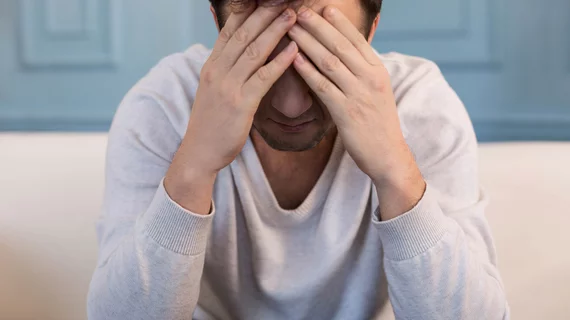fMRI reveals sleep deprivation can trigger loneliness, social rejection
Getting poor sleep can not only negatively affect one’s health but also their social life, according to new research published Aug. 14 in Nature Communications.
Researchers from University of California, Berkeley found with fMRI brain scanning that sleep-deprived people feel more socially isolated and less inclined to interact and engage with others than people who are well rested.
Specifically, Matthew Walker, PhD, a professor of psychology and neuroscience at UC Berkeley, and Eti Ben Simon, a postdoctoral fellow in Walker’s Center for Human Sleep Science at UC Berkeley, observed activated social repulsion activity in the brain’s neural networks of sleep-deprived people who watched videos of strangers walking toward them.
“The less sleep you get, the less you want to socially interact. In turn, other people perceive you as more socially repulsive, further increasing the grave social-isolation impact of sleep loss,” Walker said in a prepared statement.
This “vicious cycle," as Walker and Simon describe it, may be significantly contributing to an increase in loneliness, with national surveys finding nearly half of Americans currently feel lonely.
“It’s perhaps no coincidence that the past few decades have seen a marked increase in loneliness and an equally dramatic decrease in sleep duration,” Simon said. “Without sufficient sleep we become a social turn-off, and loneliness soon kicks in.”
For their multi-sectioned study, Walker and Ben Simon first tested the social and neural responses of 18 healthy young adults after a normal night’s sleep and a sleepless night.
The participants were then shown videos of individuals with neutral facial expressions walking toward them and were instructed to push a bottom to stop the video, indicating how close to them they allowed the person to be, according to the researchers. The participants also underwent fMRI brain scans as they watched the videos.
The researchers found that sleep-deprived participants kept the approaching person 18 to 60 percent further back than when they were well rested. Additionally, fMRI scans revealed heightened activity in the brain’s “near space network," responsible for perceiving potential incoming threats, and a decreased activity in the “theory of mind” network, which encourages social interaction.
The second section of the study involved Walker and Ben Simon recruiting 1,000 online observers to view videos of the study participants discussing opinions and activities, according to the researchers. The observers were unaware that the participants were sleep deprived and were asked to rate each of the 18 participants on loneliness and social desirability. Observers also reported feeling lonely themselves after just watching a 60 second clip of the participants.

